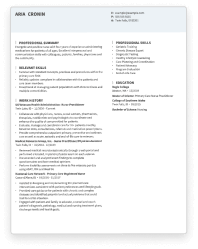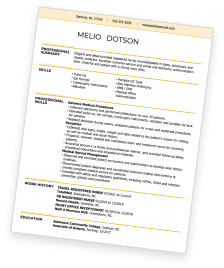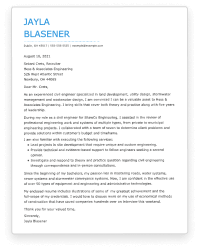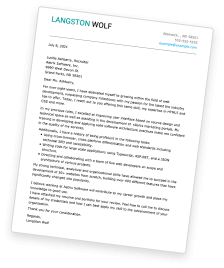Geologist Resumes: Overview
Geologists are essential to our understanding and management of the Earth’s resources and environments.
Your role may involve fieldwork, data analysis, and collaboration with interdisciplinary teams to address environmental, construction, and resource exploration challenges.
Common areas where geologists find employment include:
- Environmental Consulting Firms
- Oil and Gas Companies
- Mining Corporations
- Government Agencies
- Academic and Research Institutions
Building an outstanding resume is a crucial step in securing your next position as a geologist.
Our expertly crafted resume templates and professional examples are designed to help you showcase your unique qualifications and achievements in the field of geology, enabling you to stand out to potential employers.
Whether you’re focusing on environmental conservation, resource extraction, or geological research, we’re here to support you in creating a resume that highlights your strengths and aligns with your career goals!
Geologist Resume: Choosing A Format
Selecting the right template and resume format is a foundational step in writing a geologist resume that truly stands out.
It’s imperative to choose a format that not only clearly showcases your qualifications but also engages potential employers right from the start.
Geologists have three main resume formats to consider:
Chronological Resumes for Geologists
The chronological resume format is widely favored and emphasizes the applicant’s relevant professional experience directly related to geology.
A geologist might list all pertinent work history, including roles such as field assistant, environmental consultant, or research associate.
Each position should include a comprehensive description of responsibilities and achievements, the job title, employer’s name, location, and the dates of employment.
Bullet points detailing responsibilities and accomplishments should employ strong action verbs and, where possible, quantifiable outcomes to clearly articulate the individual’s contributions to the field.
This format is particularly ATS-friendly, aiding your resume in standing out during the initial selection process.
Functional Resumes for Geologists
Functional resumes highlight the skills of the applicant, making them ideal for candidates who might lack direct experience but possess relevant skills for geology roles.
For instance, a recent graduate with significant academic project experience in geology might choose this format to focus on their analytical, research, and fieldwork skills.
While functional resumes can spotlight important skills, they are generally less favored by employers due to the emphasis on skills over professional experience and can be less compatible with Applicant Tracking Systems (ATS).
Combination Resumes for Geologists
A combination resume integrates the strengths of both chronological and functional formats, equally emphasizing skills and experience.
This approach allows candidates to present their qualifications comprehensively.
A geologist seeking to balance a detailed skills section with substantial professional experiences might opt for this format, particularly if aiming to highlight expertise in specific geology sub-fields alongside a solid employment history.
Choosing a Resume Format
Selecting the appropriate resume format is crucial.
While the chronological format is often recommended for its focus on professional experience, the best choice for you will depend on your individual career path and achievements.
Even if your experience doesn’t directly align with traditional geology roles, consider how to frame your work history and skills as transferable and relevant to the roles you are applying for.
For example, experience in data analysis, project management, or environmental advocacy can be highly relevant to a geologist’s role and should be positioned as such on your resume.
How To Write A Geologist Resume
After selecting the perfect format for your geologist resume, follow these resume writing steps to include the essential sections that make up a comprehensive resume.
You may also opt to add more sections if they contribute meaningfully to your profile.
The five key sections to include are:
- Contact Information
- Summary or Objective
- Work History
- Skills
- Education
Each section is critical for showcasing your qualifications for a geology position and preparing you for career advancement.
Contact Information
Your contact information should list your full name, phone number, professional email address, and your current location (city and state).
Additionally, consider including your LinkedIn profile or a link to an online portfolio, especially if it displays relevant geological projects or research you’ve conducted.
Place your contact information prominently at the top of your resume, ensuring it’s easily readable. It should be distinct to make your name stand out, but not so much that it detracts from the content that follows.
An example of contact information for a geologist’s resume might be:
Alex Rivera
Salt Lake City, UT
alex.rivera@domain.com
555-987-6543
Summary or Objective
Directly beneath your contact information, your resume should feature a profile section introducing you to potential employers.
You can opt for either a resume summary or an objective, depending on your professional background.
A resume summary is a concise overview of your key skills, experiences, and career objectives, best suited for individuals with relevant work history. An example of a summary for a geologist might read:
“Experienced Geologist with over 8 years in the field, specializing in sedimentology and environmental geology. Demonstrated expertise in conducting detailed field studies and geological mapping that contributed to significant discoveries in shale gas deposits. Committed to applying advanced analytical skills and geotechnical knowledge to foster sustainable natural resource management and environmental conservation efforts.”
A resume objective focuses on your career goals and enthusiasm for the role, ideal for those with less experience or transitioning from another field. An objective for a geologist could look like:
“Recent Master’s graduate in Geology, passionate about applying theoretical knowledge and fieldwork experience to real-world environmental and geological challenges. Specialized in hydrogeology and geophysical methods with a keen interest in water resource management. Eager to contribute to innovative research and sustainable development projects within a dynamic team environment.”
Whether you choose a summary or an objective, ensure it’s tailored to highlight the most relevant skills and experiences for a geologist’s role, aligning with keywords from the job description to enhance your resume’s visibility to both ATS and hiring managers.
Work History
The “Work History” section of your geologist resume is vital for highlighting your professional experience and showcasing your achievements in the field.
Employers seek concrete evidence of your skills and contributions, making this section crucial for demonstrating your value as a candidate.
Begin with your most recent job and work backward, focusing on positions that are most relevant to the geologist role you’re aiming for. It’s important to detail responsibilities and accomplishments that underscore your suitability for the position you’re applying to.
Employ strong action verbs to describe your roles and achievements, and quantify your impact with numbers or percentages whenever possible.
Metrics add weight to your accomplishments, lending credibility to your capabilities and setting you apart as a candidate.
An example of what the work history section might look like for a geologist:
Senior Geologist
Global Mining Solutions, Denver, CO
01/2016 – Present
- Led a team of geologists in conducting comprehensive field studies across five major sites, increasing resource estimation accuracy by 25%.
- Implemented advanced geospatial analysis techniques, improving the efficiency of mineral exploration projects by 30%.
- Spearheaded the development of an innovative geological mapping protocol, enhancing the company’s ability to identify viable extraction sites.
- Co-authored three research papers on sedimentary basin analysis, contributing to the industry’s understanding of unconventional gas reservoirs.
- Managed cross-functional teams in environmental assessment projects, ensuring compliance with federal regulations and minimizing ecological impacts.
Each bullet point should begin with a dynamic action verb, clearly stating your role, the action you took, and the positive outcome or result of your action, illustrating your direct impact on the company or project.
Skills
The skills section of your geologist resume is where you list your most pertinent hard skills and soft skills, tailoring this list to match the requirements of the geologist position you are applying for.
This section should highlight a balanced mix of technical expertise and interpersonal abilities that make you a well-rounded candidate.
Some essential hard and soft skills for geologists include:
Top 5 Hard Skills for Geologist Resumes
- Geological Mapping: Proficiency in creating detailed maps of geological features is fundamental for geologists to accurately document and analyze earth formations.
- Sample Analysis: Expertise in analyzing geological samples using various laboratory techniques to determine composition, properties, and potential value.
- GIS and Remote Sensing: Computer skills in utilizing Geographic Information Systems (GIS) and remote sensing technologies for data collection and analysis are increasingly important in modern geology.
- Environmental Assessment: Knowledge in conducting environmental impact assessments to evaluate the potential effects of projects on the geological and ecological environment.
- Mineralogy and Petrology: Understanding the properties, classification, and processes of minerals and rocks is crucial for geologists in many sub-disciplines.
Top 5 Soft Skills for Geologist Resumes
- Analytical Thinking: The ability to analyze data and make informed decisions based on complex geological information is essential for geologists.
- Communication: Strong verbal and written communication skills are necessary for presenting findings, writing reports, and collaborating with interdisciplinary teams.
- Problem-Solving: Geologists often face unexpected challenges in the field and must be adept at problem-solving to find solutions.
- Attention to Detail: Precise observation and meticulous attention to detail are critical for identifying subtle geological features and accurately recording data.
- Adaptability: The capacity to adapt to various environments, whether in the field or dealing with fluctuating project requirements, is valuable for geologists.
An example of how to format the skills section on a geologist’s resume:
Skills
- Geological Mapping: Advanced proficiency in topographic and subsurface mapping
- GIS and Remote Sensing: Skilled in ArcGIS for spatial data analysis
- Sample Analysis: Experienced in XRF and mass spectrometry techniques
- Environmental Assessment: Knowledgeable in regulatory compliance and impact mitigation
- Communication: Effective at conveying complex geological concepts to non-specialists
By carefully selecting skills that align with the job description and reflect your strengths, you can craft a skills section that enhances your resume and appeals to potential employers.
Education
The education section of your geologist resume should clearly list your highest degree first, followed by the name and location of the institution.
Additionally, you may include your graduation date, relevant coursework, thesis or dissertation topics, and any honors or awards you received.
Given the technical and scientific nature of geology, detailing your academic background is crucial. This section demonstrates your foundational knowledge and specialized training in the field.
An example of an education section for a geologist’s resume might look like:
University of Colorado Boulder
Boulder, CO
- Master of Science in Geology, Specialization in Sedimentology
- Thesis: “The Depositional Environments of the Late Cretaceous Period in the Western Interior Basin”
- Graduated Magna Cum Laude
Additional Sections
Consider adding additional sections to your resume if they provide value and are relevant to your geology career objectives.
These sections can differentiate your resume by showcasing a well-rounded background and additional competencies.
For a geologist, you might include:
- Certifications: List any professional certifications relevant to geology, such as a Professional Geologist (PG) certification, GIS certification, or safety certifications for fieldwork.
- Technical Skills: If not already included in your main skills section, detail specific technical skills such as proficiency in specialized software, laboratory techniques, or field equipment.
- Professional Affiliations: Membership in professional organizations like the Geological Society of America (GSA) or American Association of Petroleum Geologists (AAPG) shows your engagement with the geology community.
- Publications and Presentations: Highlight any research papers you’ve authored or co-authored, presentations at scientific conferences, or other contributions to the field of geology.
- Fieldwork Experience: Detail significant fieldwork projects, especially those not covered in your work history, to emphasize hands-on experience and exploration skills.
Separating these details into additional sections can enhance the narrative of your professional journey and spotlight your unique qualifications.
Top Certifications For Geologists
Certifications can significantly enhance a geologist’s resume by providing professional validation of their skills and knowledge.
While the requirements can vary depending on the specific field of geology, certain certifications are widely recognized and valued across the industry.
- Professional Geologist (PG) Certification: Offered through various state boards, the PG certification is a testament to a geologist’s expertise, adherence to professional standards, and commitment to ongoing education. It’s particularly important for those involved in consulting and environmental geology.
- Certified Professional Soil Scientist (CPSS): This certification, offered by the Soil Science Society of America (SSSA), is relevant for geologists focusing on soil science. It acknowledges their specialized knowledge in soil classification, genesis, and mapping crucial for environmental and agricultural applications.
- GIS Certification: Geologists skilled in Geographic Information Systems (GIS) can obtain certifications like the GIS Professional (GISP) from the GIS Certification Institute. This certification highlights proficiency in spatial analysis, data management, and GIS software, essential tools for modern geology.
- HAZWOPER Certification: The Hazardous Waste Operations and Emergency Response (HAZWOPER) certification is mandatory for geologists working with hazardous waste. It covers safety and health hazards, ensuring safe practices in potentially dangerous environments.
- American Institute of Professional Geologists (AIPG) Certification: The AIPG offers certification for geologists demonstrating high levels of competency and ethical standards. This certification is a mark of professionalism and is recognized by employers and clients in the geosciences.
8 Tips For Writing A Geologist Resume
Tailor Your Resume: Adjust your resume for each position to reflect the specific requirements and desired skills listed in the job posting. Highlighting relevant experiences and expertise can greatly increase your chances of getting noticed.
Use Action Verbs: Employ dynamic action verbs to describe your geological work and achievements. Words like analyzed, mapped, surveyed, and investigated can powerfully convey your contributions and impact.
Highlight Achievements: Whenever possible, quantify your accomplishments with data and statistics. For example, mention the scale of the projects you’ve worked on, the value of resources you helped discover, or the efficiency improvements your work contributed to.
Include Keywords: Scan the job listing for industry-specific terms and incorporate these keywords into your resume. This strategy is crucial for getting past Applicant Tracking Systems (ATS) and appealing to hiring managers.
Technical Proficiencies: Clearly list your technical skills, including software proficiency (e.g., GIS, remote sensing applications, statistical analysis software) and field techniques, to demonstrate your capability to perform required tasks.
Field Experience: Detail your fieldwork experiences, emphasizing your ability to conduct research, collect and analyze samples, or manage field operations in various environmental conditions.
Professional Development: Include certifications, workshops, or courses you’ve completed that are relevant to the geology field. This shows your commitment to staying current with industry standards and technologies.
Proofread for Professionalism: A resume free from grammatical errors and typos reflects your professionalism and attention to detail. Consider having a colleague or mentor review your resume to catch any overlooked mistakes.
Helping Job Seekers Like You


Use Hloom's Resume Builder
Key Takeaways
- Geologists have a crucial role in understanding Earth’s processes, resources, and environmental challenges, necessitating a broad and specialized skill set.
- The chronological resume format is generally recommended for geologists to highlight their professional experience effectively. However, choosing the right format should be based on individual career experiences and goals.
- Education and certifications are pivotal in a geologist’s resume, showcasing their knowledge base, specialization, and commitment to professional standards in the field.
- Including a mix of technical and soft skills relevant to geology helps articulate a comprehensive profile capable of meeting diverse job demands.
- Ensuring your resume is optimized for Applicant Tracking Systems (ATS) by incorporating industry-specific keywords and maintaining a clean format is essential for making your resume more noticeable to potential employers.
Use Hloom's Cover Letter Builder














